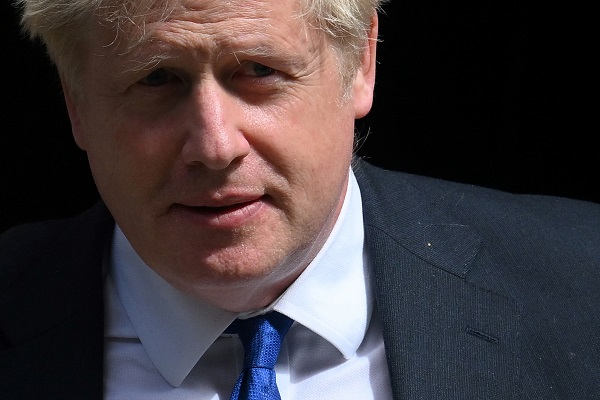FTSE 100 holds firm and pound rallies as Boris Johnson resigns
7th July 2022 10:51
by Victoria Scholar from interactive investor
As Prime Minister Boris Johnson finally succumbs to political pressure to step down, our head of investment looks at the immediate impact on financial markets.

Finally, Boris Johnson has given in to pressure from the wave of government resignations, stepping down as Conservative party leader today.
The pound is pushing higher, hitting session highs and inching closer back up to key psychological resistance at $1.20, a critical support level it broke below this week amid the political and economic uncertainty.
The currency market is relieved that Johnson has finally resigned, removing some of the political uncertainty that was priced into the pound and paving the way for a new prime minister to replace the unpopular leader.
Nonetheless, the pound had an extremely difficult first half this year, logging its worst half-year drop since 2016, with expectations for more downside in the second half of the year, particularly for cable (GBPUSD) given this year’s strong safe haven demand for the dollar.
The FTSE 100 is pushing higher for the second day in a row, rallying from oversold conditions after a sharp sell-off earlier in the week, mostly driven by risk-on sentiment that is driving equities higher across Europe after the Federal Reserve’s meeting minutes last night signalled that the central bank is serious about inflation.
The political risk is having little impact on UK equities, with inflation and recession fears as well as earnings the key drivers for equities at this time.
The FTSE 100 is largely an international index, so is not closely correlated to the UK economy. It has been relatively resilient this year thanks to its favourable sectoral mix of energy stocks and banks, which have outperformed this year amid the war in Ukraine and rising interest rates from the Bank of England which have supported the two sectors respectively.
The New Chancellor of the Exchequer, Nadhim Zahawi is expected to review the government plans to increase corporation tax from 19p to 25p, scheduled for next April.
Clearly, the government is looking to do something to try to win back support at this fractious time, despite the fact that the public purse is far from healthy post-pandemic when billions of pounds were spent to support the economy on programmes like track and trace and the furlough scheme.
However, Zahawi must tread carefully because fiscal spending or tax cuts can be inflationary, with rising price levels the biggest economic challenge the government faces today. Any signs of expansional fiscalism could prompt a faster path of rate hikes from the Bank of England to curtail inflation.
These articles are provided for information purposes only. Occasionally, an opinion about whether to buy or sell a specific investment may be provided by third parties. The content is not intended to be a personal recommendation to buy or sell any financial instrument or product, or to adopt any investment strategy as it is not provided based on an assessment of your investing knowledge and experience, your financial situation or your investment objectives. The value of your investments, and the income derived from them, may go down as well as up. You may not get back all the money that you invest. The investments referred to in this article may not be suitable for all investors, and if in doubt, an investor should seek advice from a qualified investment adviser.
Full performance can be found on the company or index summary page on the interactive investor website. Simply click on the company's or index name highlighted in the article.